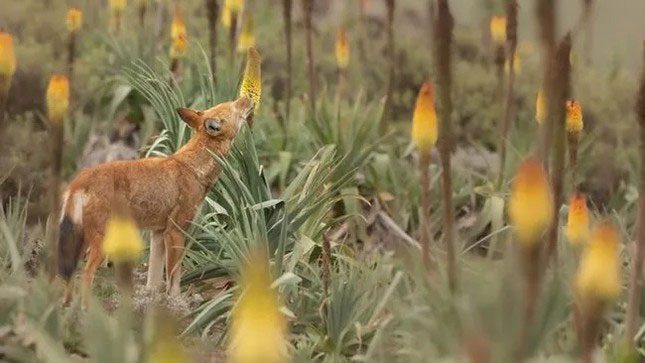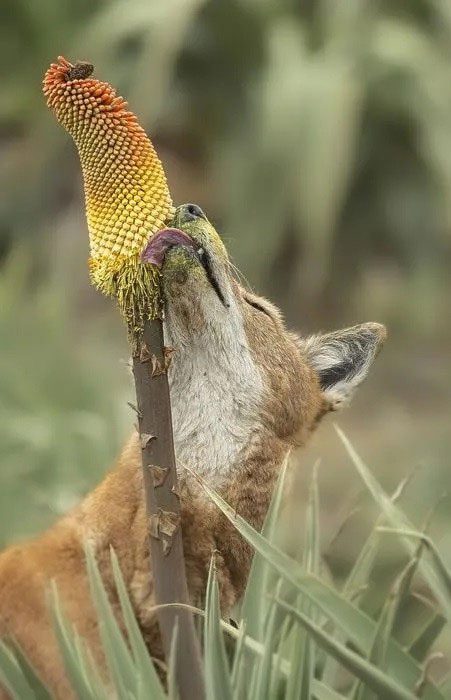The wolves in Ethiopia lick the red hot poker flowers. This is the first known large carnivore in the world known to consume nectar.
There is a species of wolf that has a sweet tooth.

A wolf licking a vibrant red hot poker flower in Ethiopia. (Photo: Adrien Lesaffre).
Recent photographs reveal the Ethiopian wolf (Canis simensis) consuming the nectar from the Ethiopian red hot poker flowers (Kniphofia foliosa). Such carnivores are rarely observed feeding on nectar. Researchers believe this may be the first large carnivore identified as a pollinator, although further studies are needed to confirm their role.
“These findings highlight that there is still much to learn about one of the most threatened carnivores in the world,” said Sandra Lai, a co-author of the study and an ecologist at the University of Oxford.
The red and yellow flowers of the Ethiopian red hot poker produce sweet nectar that attracts various pollinators, including insects and birds. In previous field studies, researchers occasionally observed wolves licking the flowers, prompting them to investigate this behavior more thoroughly.
In a new study published in the journal Ecology, researchers monitored six Ethiopian wolves from three different packs over four days. While most wolves only visited a few flowers, one wolf visited 20 flowers, and another visited 30 flowers in a single foraging session.

A wolf licking a hot poker flower in Ethiopia. (Photo: Adrien Lesaffre).
When the wolves visited a vibrant red hot poker plant, they often licked the mature flowers at the bottom, which contain the most nectar. As they did so, their snouts became covered in pollen. This means that the wolves could potentially disperse that pollen to other flowers, as noted by the researchers in their study.
However, it remains unclear whether wolves are effective pollinators. Nectar is not a significant part of their diet, thus more research is needed to determine how frequently wolves visit flowers. There is currently no evidence showing that a wolf can transfer enough pollen to another flower for effective pollination.
“The first time I learned about the nectar from the Ethiopian red hot poker was when I saw children of shepherds in the Bale Mountains licking the flowers,” said Claudio Sillero, a co-author of the study and a conservation biologist at the University of Oxford. “Soon after, I tasted it – the nectar has a pleasant sweet flavor. Then I saw the wolves doing the same, and I knew they were enjoying this unusual energy source.”


















































